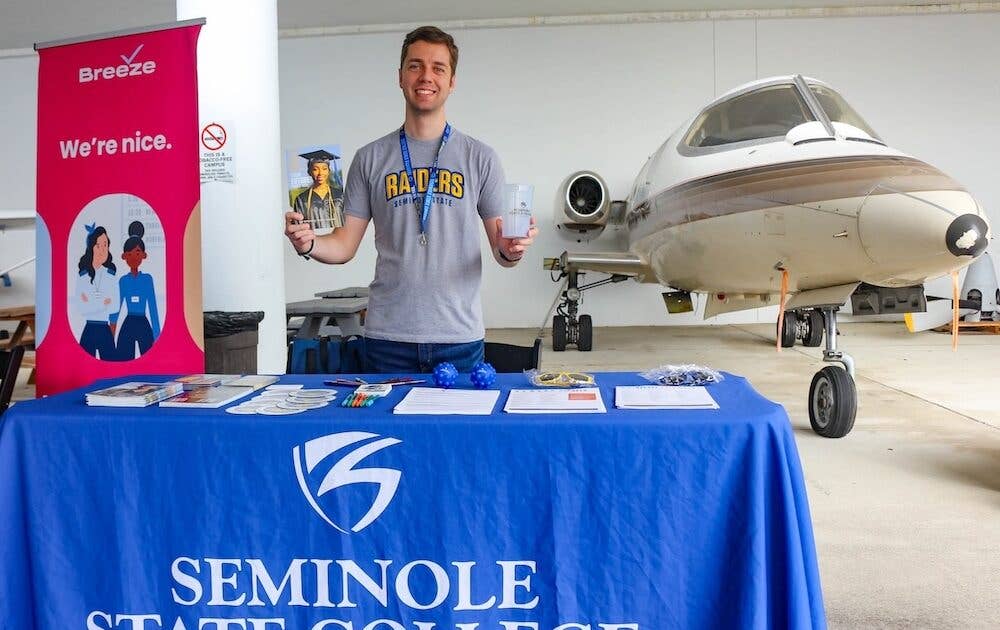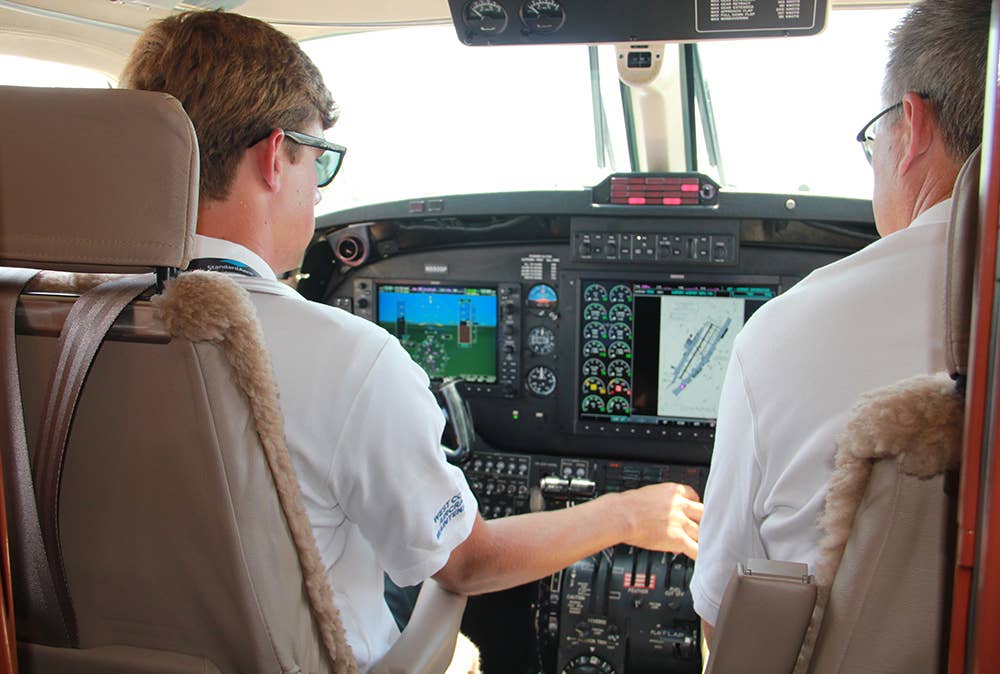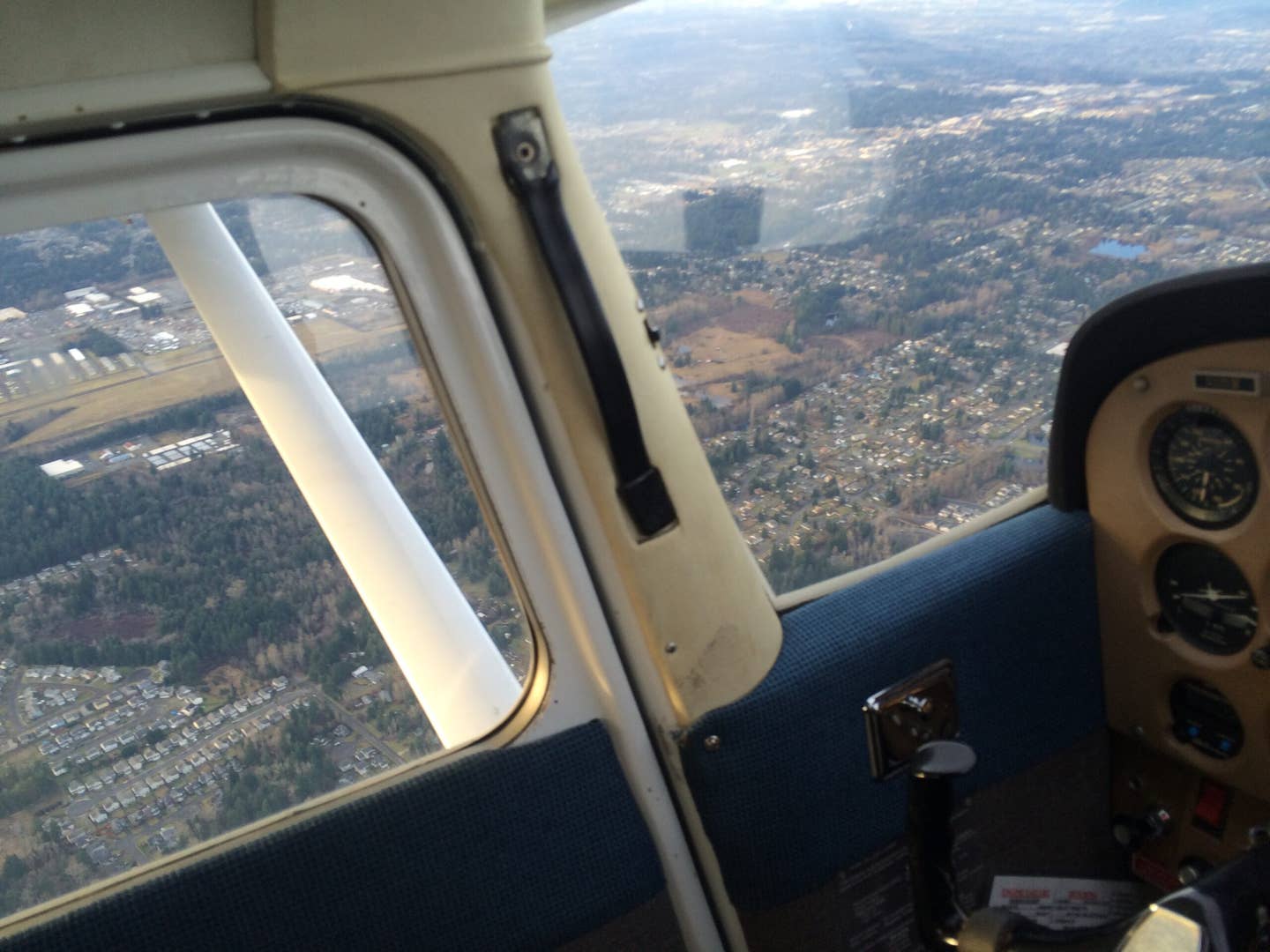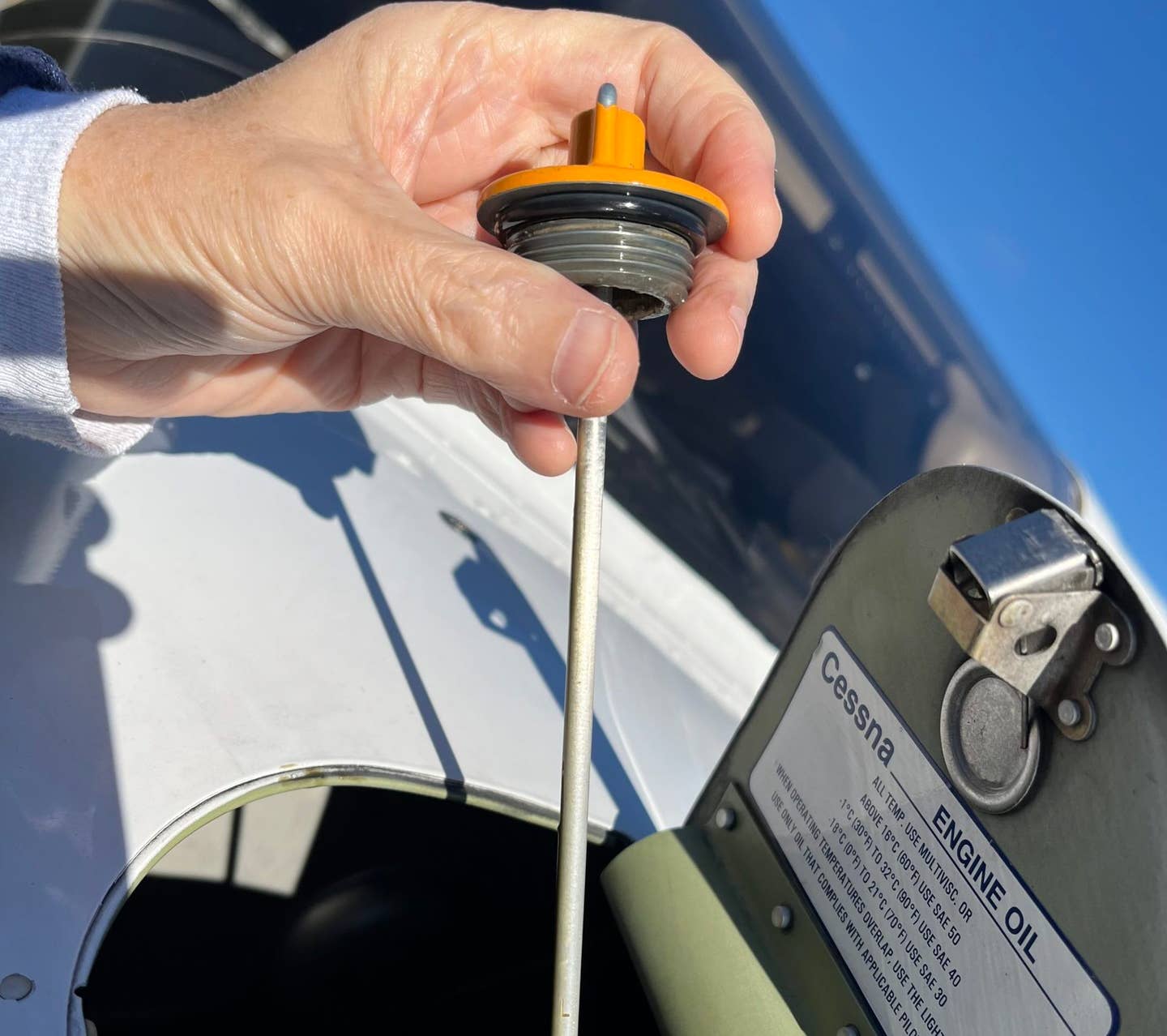Women in Aviation: Aspiring Instructor Deaf and ‘Born to Fly’
Deneese Krumm is overcoming unique challenges to become one of only a few in her chosen field.
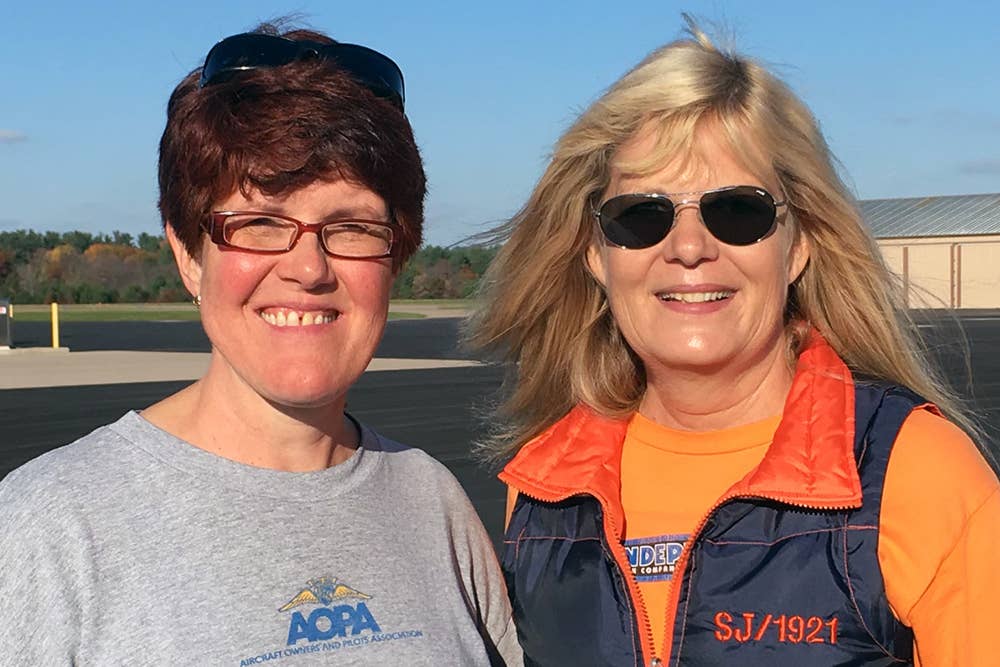
Deneese Krumm (left) spends a moment with writer Ellen Voie. Contributed photo
It was a crisp October day, and I had just put my Cessna 172 Skyhawk back into the hangar when I noticed a group of women standing near the terminal. It was obvious they were waiting for a ride. Soon I saw a 172 land, and three women emerged with the female pilot.
The pilot, Deneese Krumm, had flown in from Indianapolis to attend a Deaf Women’s Camp. She had offered to give the campers a ride in the sky, and when I learned this, I offered to help give rides as well.
Yes, Krumm and all of the eager riders that day are deaf. I was thrilled to take up a few passengers, and the ladies were truly appreciative.
I stayed in touch with Krumm and asked her if I could write about her. She agreed and informed me that she was in the process of earning her CFI sport certificate.
That makes this story even more interesting, as her goal is to be one of the few instructors to provide training in sign language.
Krumm said her mother told people she was born with her eyes already looking up to the skies. She didn’t start her aviation training until 2001, after spending 14 years doing missionary work in Europe. She passed her FAA private-pilot check ride on the first attempt in 2009 and went on to earn her commercial certificate in 2011 and multi-engine rating on her commercial in 2018.
She started looking for a job as a pilot. She responded to ads to haul cargo, tow banners, take aerial photos, and even drop skydivers. They all declined to hire her, claiming she “couldn’t do the job.”
After more than 100 rejections, a friend suggested Krumm become a CFI for light sport aircraft. She was serving on the board of the Deaf Pilots Association and saw multiple requests for a deaf flight instructor. She wanted to fill that need and decided to become one.
Krumm had been trained by instructors who used a notebook and pen to give her flight training. To perform the maneuvers, they used flashcards. Often, her CFIs would learn some basic hand gestures to make the process smoother, but typically she communicated with a lot of note-writing. She kept those notes as a journal for her training.
How Does a Deaf Person Do It?
In order to obtain a private pilot certificate, a deaf person will need to take the FAA medical exam just like anyone else, but there is an extra step in the process.
The medical examiner will defer the application to the FAA Aeromedical Certification Branch in Oklahoma City. Then, the deaf pilot must take a medical flight test with an examiner, and they’ll be required to demonstrate that they can recognize an imminent stall and an engine failure.
Once this has been accomplished, the renewal process is the same as for any pilot. An alternative to the standard medical certificate would be to use Basic Med, which will make the process less cumbersome.
A deaf pilot can fly into any of the nearly 5,000 nontowered airports in the U.S. without using a radio to communicate. To land at one of the 500 airports with towers, however, a deaf pilot will need to communicate in advance with ATC.
Krumm calls the airport before the trip and with the use of a sign language interpreter, she coordinates her arrival by requesting the use of light guns along with the authorization to land.
Other Challenges
The biggest challenge for Krumm in becoming a pilot? “Small-minded people,” she said. She’s learned to just let the skepticism go in one ear and out the other, or in her case, she said it’s “in one eye and out the other!”
Spin training was also a big challenge. Krumm said the thought of spinning was terrifying. She avoided it, even though she admitted the instruction would help her become a better pilot. To become a CFI she would need to understand the dynamics of recovering from a spin, so she found an aerobatic instructor to take her for a lesson.
“I was only nervous the first couple spins,” Krumm said, “then I was hooked and kept doing it over and over cause I needed to get it right.” After almost two hours, the instructor asked her if she was ready to land, but she begged for just “one more, one more.”
On their return, her instructor asked her if she wanted to experience a loop.
“It was the most amazing experience, and as he pulled out of the loop, my heart said, ‘You were born to fly.’”
Krumm truly was born to fly, and she is a rare pilot. According to the Deaf Pilots Association website, there are only a handful of known deaf sport pilot instructors and even fewer flight instructors.
Krumm is currently a ground instructor nearing completion of her CFI qualifications. The Deaf Pilots Association points out on its website that “it is extremely difficult to obtain a flying job as a deaf pilot,” but they are on a mission to change that. Typically, commercial flying jobs require an instrument rating, and there are only a few deaf pilots who have earned that certification.
That doesn’t phase Krumm.
“I don’t just love flying, I love being able to share it,” she said. She especially enjoys giving Young Eagle flights and transporting rescue dogs in addition to giving airplane rides to family members and friends.
“I’ve often experienced the joy of taking a scared passenger up for their first flight and watch them transform as the fear leaves while they are flying,” she said.

Sign-up for newsletters & special offers!
Get the latest FLYING stories & special offers delivered directly to your inbox

